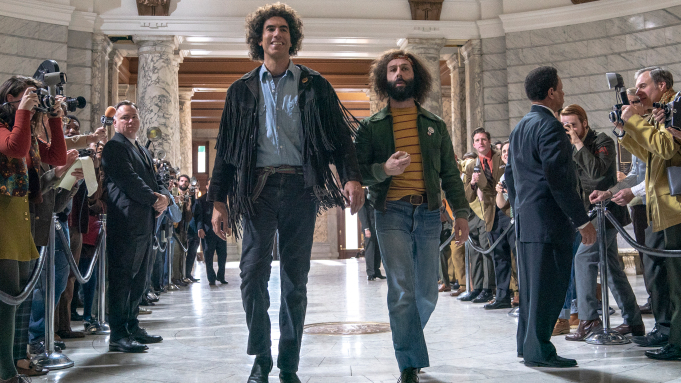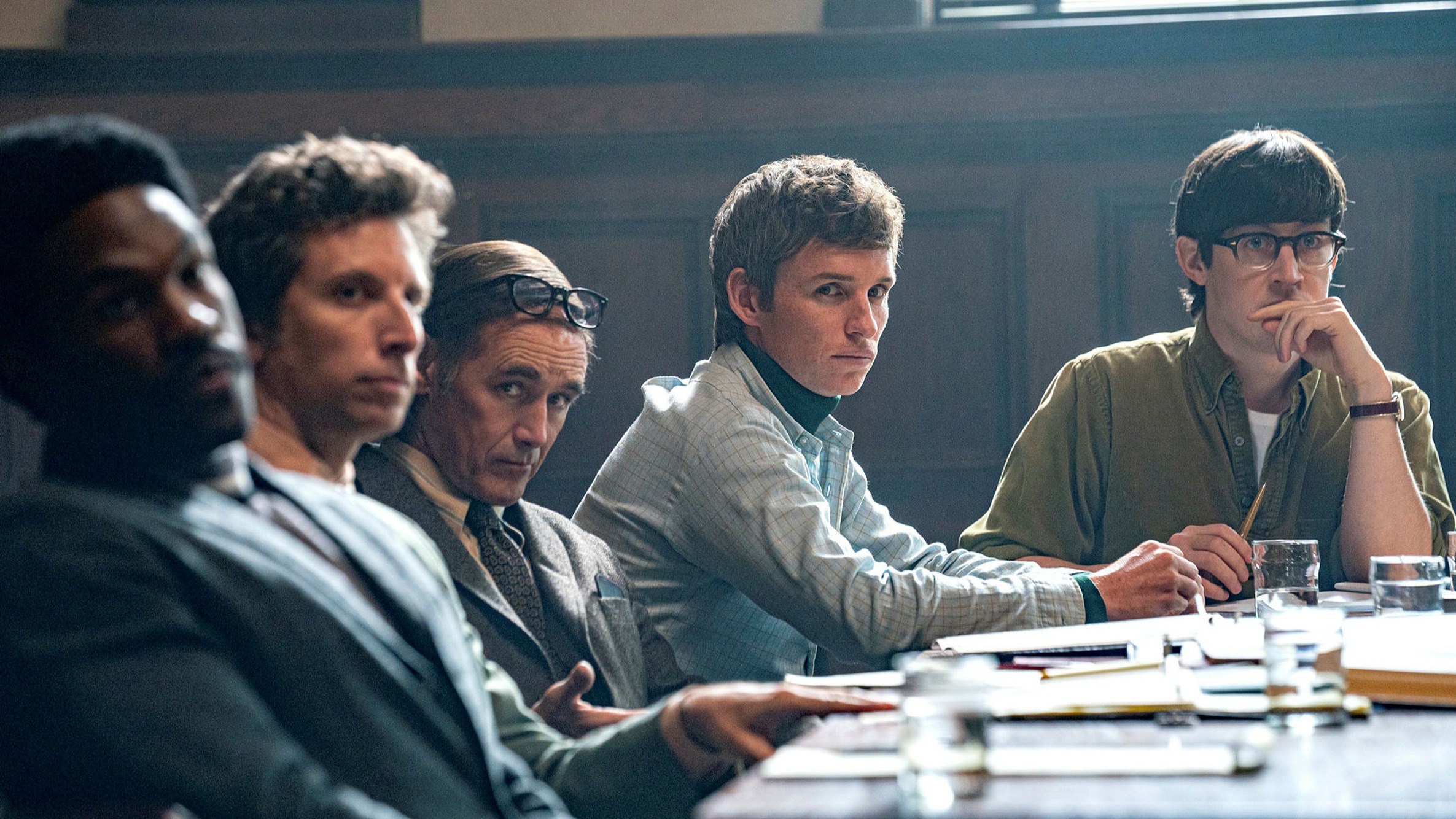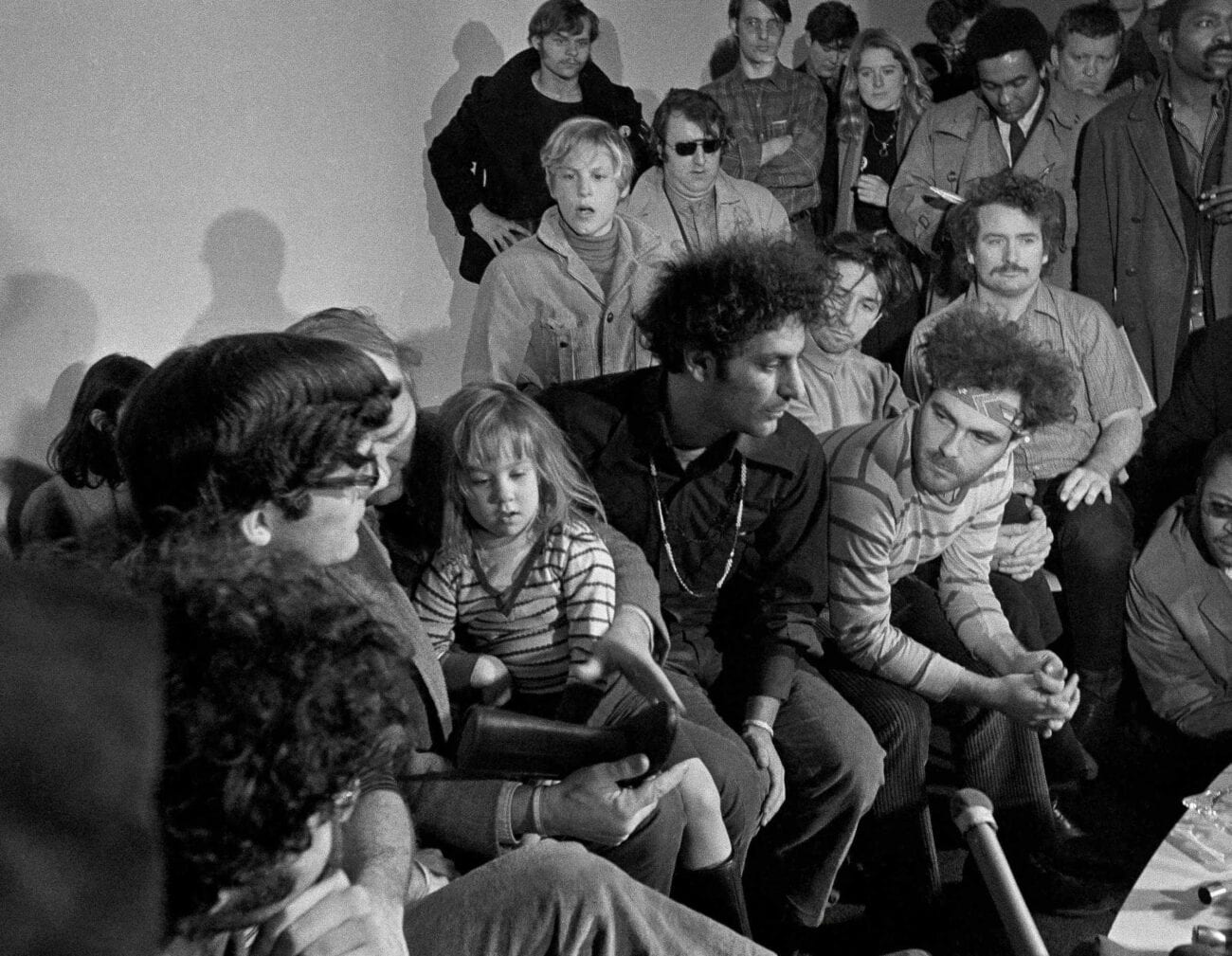


16/10/20
Netflix
Those people who despair about the current state of the judicial system in America should take a long, hard look at The Trial of the Chicago 7 – if only to remind themselves that it was just as rotten in the late 60s.
The titular trial is, of course, one of the most outrageous miscarriages of justice in relatively recent history, and here it is in all its shocking detail. Presented as fiction, this would inevitably raise eyebrows. The fact that it’s all true only intensifies the sense of shame the story generates. This is a damning narrative in the truest sense of the word.
It’s the story of a bunch of radicals who, in 1968, organised a peaceful protest against the Vietnam War. On the night of the protest, a large contingent of the protesters were cornered by the police and subjected to a brutal physical assault. Many of the officers removed their identification before striking out with their batons.
The upshot should surely have been that the Chicago police were the ones on trial, but no such luck. Tom Hayden (Eddie Redmayne), Abbie Hoffman (Sacha Baron Cohen), Jerry Rubin (Jeremy Strong) and four of their friends find themselves up before Judge Julius Hoffman (Frank Langella), a rampant hardliner who clearly deems them guilty on the length of their hair alone. Their crime? Hard to say, really. Obstructing police batons with their faces?
Just to complicate matters, Black Panther member Bobby Seale (Yahya Abdul-Mateen II) is on trial alongside them, for no apparent reason other than he happened to be in Chicago on the same night. He has no legal representation in the court and, when he tries to speak for himself, he’s escorted outside, beaten, shackled and brought back in wearing a gag.
Think about that for a moment…
Writer/Director Aaron Sorkin has been working on this film for several years and it’s clearly a passion project. At first glance, some of the casting seems questionable but, as it turns out, Redmayne is perfectly convincing as Hayden, and Baron Cohen – hardly the go-to person for a credible acting performance – really captures the spirit of Abbie Hoffman, delivering what just might be his best film performance so far.
There are plenty of other sterling actors in smaller roles – Mark Rylance, Joseph Gordon-Levitt and Michael Keaton to name but three – and the era is reproduced in almost forensic detail. It’s evident that Sorkin has designed this as a salutary lesson, a plea for the USA to ditch the kind of values exhibited here.
Some of that will be decided in the upcoming Presidential election but, in the meantime, here’s a chilling testament to the iniquities of the law and a stark warning of what happens when the judiciary isn’t held to proper account.
Hard-hitting stuff.
4.3 stars
Philip Caveney


